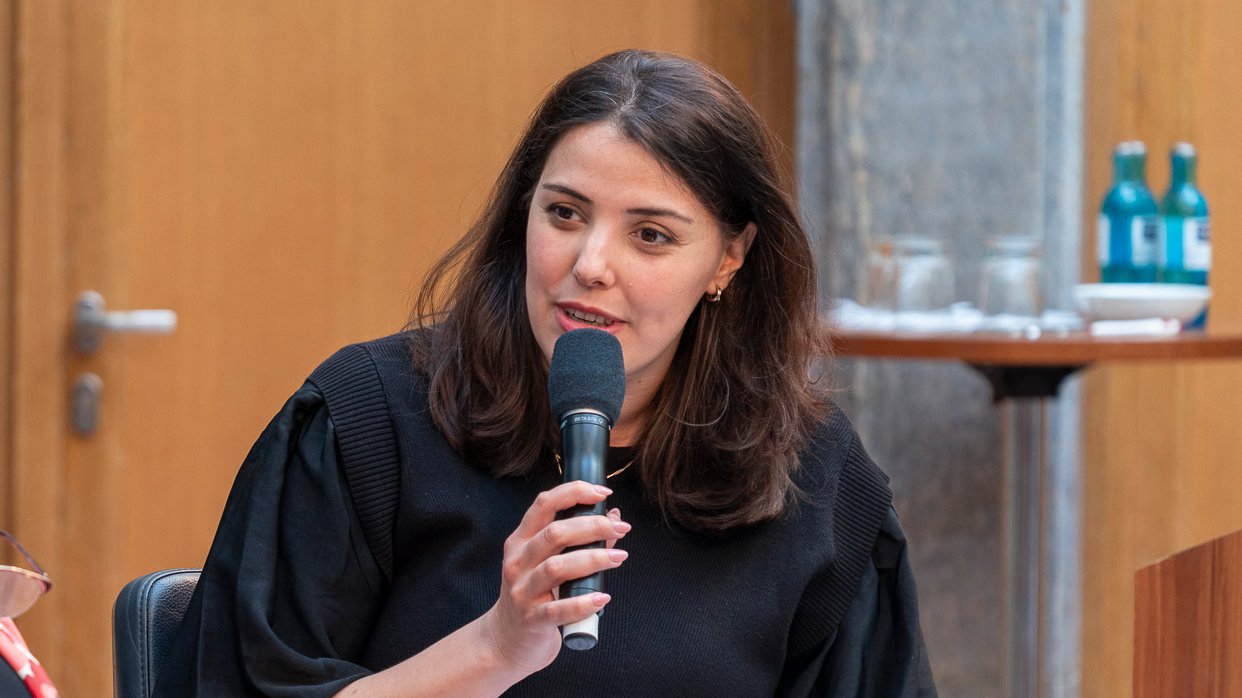“We mustn't be intimidated by the changed political game”
Dr. Raphaela Schweiger, who leads our work on migration and immigration society, joined the Robert Bosch Stiftung in early 2015. In this piece, she reflects on how foundations can help drive forward integration – particularly in these times.
2015 was a sleepless year. Day and night, the ball was being tossed back and forth – in politics, in civil society, in academia. Everyone was trying to answer questions to which there were, as yet, no answers: How can a municipality accommodate hundreds of refugees overnight? It was a time of energy and euphoria. But even then, it was clear that this momentum would eventually come to an end. “Hospitality fatigue” became a well-known term.
That's why it was clear that we as a foundation had to stay on track and work reliably over the long term. Continuity is perhaps our greatest success. Since then, we’ve been active in over 50 municipalities and built cross-sector alliances for integration. Before 2015, rural areas in Germany had little experience with immigration, rarely had integration officers, and lacked a strategy. Today, there are committees such as the Forum Integration in Rural Areas, which was initiated, among others, by our foundation and in which municipal representatives from all over Germany regularly network and exchange ideas about innovative concepts and projects.
‘We can do this!’ – What remains of Angela Merkel’s famous words?
Overview with all the statementsThese reflections by Raphaela Schweiger are part of a series within our funding topic immigration society. In 2015, Angela Merkel famously said, “We can do this!” — referring to Germany’s response to the arrival of hundreds of thousands of refugees within just a few months. Ten years on, we have asked experts and partners from our projects: What progress has Germany made in terms of integration?
All of our issues have become more difficult in recent months. On the topic of migration, we’re working with a wide range of political actors to see how existing structures, such as the asylum law and the Geneva Convention on Refugees, can be stabilized. As a result of the new and harsher climate, it’s no longer just a matter of creating spaces for dialogue, but also of creating safer spaces.
And we are asking ourselves how we can prevent affected groups from withdrawing and how they can continue to get involved. Incidentally, this applies not only to refugees, but also to volunteers and local politicians. Perhaps this shared experience is also an interface where something new can emerge.
“In recent years, the social debate has often focused on two extremes: you’re in favor of open borders or isolation. We deliberately stand between those two extremes.”
In recent years, the social debate has often focused on two extremes: you’re in favor of open borders or isolation. We deliberately stand between those two extremes. Germany needs immigration, but it must be orderly and controlled, and there needs to be good communication and exchange about it. Only in this way can we fulfill our humanitarian responsibility in the long term and regain the trust of the German population.
What makes our foundation's work so special is that it simultaneously takes place on several levels. On the one hand, we support local community projects such as in Cottbus-Sandow, a district with social conflicts, a high proportion of AfD voters, and a diverse population that includes many refugees. New forms of coexistence are emerging there. And we are asking ourselves what we can learn from this and what can be transferred to other places.
At the same time, we are accompanying international processes and supporting, for example, the Mayors’ Migration Council. This body strengthens the voice of cities on the international stage, for example when it comes to finding solutions to the noticeable consequences of climate-induced migration. At some point you realize that the challenges facing mayors in Germany and Ghana are not so different after all.
Even the largest foundations cannot close budget gaps at a national level. But what we can do is not only think of new ideas, but also test and develop them. One example is a concept we’re transferring from other countries like Italy to Germany: How can skilled workers be identified among refugees in third countries – and how can their integration and direct access to the labor market in Germany be facilitated? This creates a win-win-win situation. We’re also involved at a European level, for example through the European Philanthropic Initiative for Migration, in which 18 foundations jointly fund projects, especially in places where there are few philanthropic structures, such as Central and Eastern Europe.
Germany is a country of immigration – that is the reality. It is important that we do not allow ourselves to be intimidated by the changed political climate and the many trouble spots. I see it this way: crises are unpleasant, but they are also windows of opportunity. In such situations, decision-makers in business and politics are often open to ideas from players who can think five steps ahead. And when this window opens, we and our partners need to be there.

